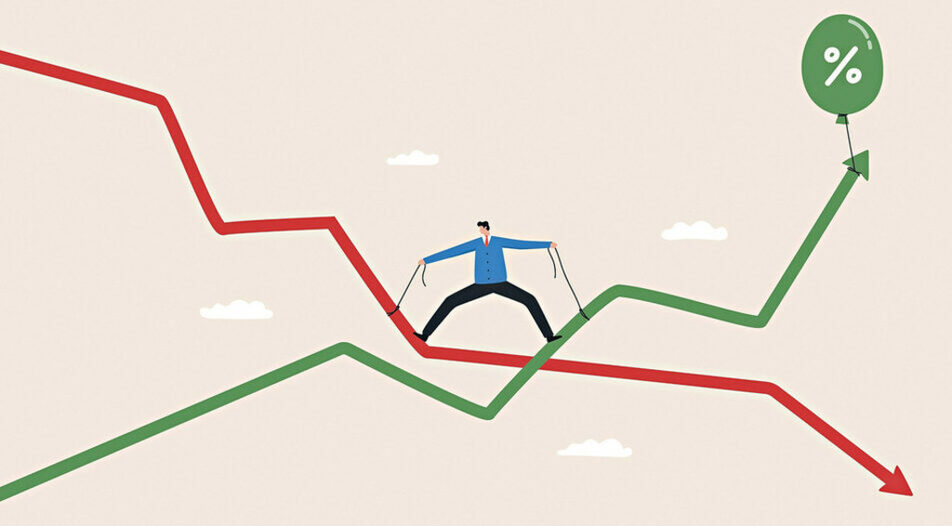- GDP grew by 2% y/y in the first quarter, and forecasts are for more weak months.
- Consumption and exports are losing steam.
- A recession in Europe and the political crisis in Bulgaria are the main risks.
Until recently, statistics pointed to record growth in exports, wages, industrial production, and housing construction in Bulgaria. But this changed dramatically during the first three months of 2023. Many of the indicators declined for the first time in the past two years which have been seen as a period of economic recovery.
Year-on-year GDP growth rate came in at just 2% in the first quarter - the slowest pace of increase in a dozen years, if we exclude the declines during the pandemic. The reason is that the main drivers of growth probably reached a tipping point.
The slowdown has been expected, as all of Europe displays such results due to high inflation, rising interest rates, and uncertainty due to the war in Ukraine. The country's economy is forecast to stagnate in the next few quarters.
Economic engines revving down
Last year, consumption was one of the strongest growth drivers in the country. Rapidly rising prices were offset by rapidly rising incomes, which protected households' purchasing power. In the first quarter of this year, the average salary continued to grow, rising by 17.3% year-on-year to reach a record for the last dozen years. Payments from the state have grown even more significantly. Pensions, for example, were increased several times last year.
Thus, consumption has continued to increase in real terms during the first months of the year. But there are also signs of weakening. The growth rate is already at almost half of last year's level (up to 2.8%), and compared to the last quarter of 2022, consumption is even slightly lower. Although households spend 25% more on food, the consumed quantities of most products are decreasing. Forecasts for 2023 are for wage growth to slow down amid still high inflation. The expectations are for inflation to gradually decelerate and within one or two months to fall below 10% year-on-year. However, annual inflation can hardly abate below 5-6% by the end of 2023, according to Peter Ganev, an economist at the Institute for Market Economics.
The second major economic driver last year were merchandise exports. In 2022, they rose at a record pace and ranked first in terms of growth in the EU. However, this March brought the first monthly decline in overseas sales in two years. Exports of electricity, fuels and fats, which were the engine of the strong results, have now lost steam. The increases were supported by the high global prices of these products, but now the prices are returning to normal. In the first four months of this year, for example, electricity exports fell by more than 60%, and last year's boom in fuel sales to Ukraine is also faltering.
If there is one indicator that appears to be improving, it is investment as a component of GDP. In the first quarter, gross capital formation grew by 5.2% year-on-year. However, the contribution of this indicator to GDP growth will be smaller due to a decline in inventories. Last year, many companies stockpiled amid uncertainty about supply chains due to the war in Ukraine. Now the expectation is for the opposite to happen with the return to normal mode of operation. However, this remains to be seen when more detailed data for this period become available.
Cooling started from outside
The Bulgarian economy follows the development of major European economies, since the country is strongly linked to them. And they are slowing down as a result of the ECB's policy of raising interest rates in combination with the already waning energy crisis. For now, the expectations are that the Eurozone will avoid recession, but will not report much growth. And for Bulgaria, the forecasts are that GDP growth this year will not exceed 1.8%.
"Last year the horizon was a bit clearer, while now every day the signals are different due to the political crisis. This is creating chaos and sooner or later it will affect the assessment and external analysts. Although Fitch confirmed its assessment of Bulgaria's credit rating, giving confidence to the leading parties that they will produce a budget with a deficit of around 3% of GDP, that confidence can be shaken very quickly. If there is another extension of the 2022 budget into 2023, which is already quite possible, sooner or later the outside watchers will withdraw their trust in the main political actors," says Ganev. And this will also affect the price at which the state is financed. Even if the budget turns out to have a smaller gap this year than the startling 12 billion levs predicted by the caretaker cabinet, the Finance Ministry will have to go to foreign markets to finance the shortfall.
And there are enough risks outside that can turn the forecasts into a negative scenario, and this will automatically be transferred here as well," adds Ganev.
According to him, the danger of a recession in Europe should not be completely crossed out yet. "Whether a country like Germany is technically in recession, i.e. whether growth was 0% or -0.1% in the last quarter, the difference is minimal indeed.
So, for us too, it's not a question whether we might go below zero at some point, and what the depth of the crisis will be, or how long it will last," explains Ganev.
For now, however, clouds on the horizon are still small. "I don't think that Europe, especially Central and Eastern Europe, will enter a long period of weak growth," Ganev concludes optimistically.
- GDP grew by 2% y/y in the first quarter, and forecasts are for more weak months.
- Consumption and exports are losing steam.
- A recession in Europe and the political crisis in Bulgaria are the main risks.












